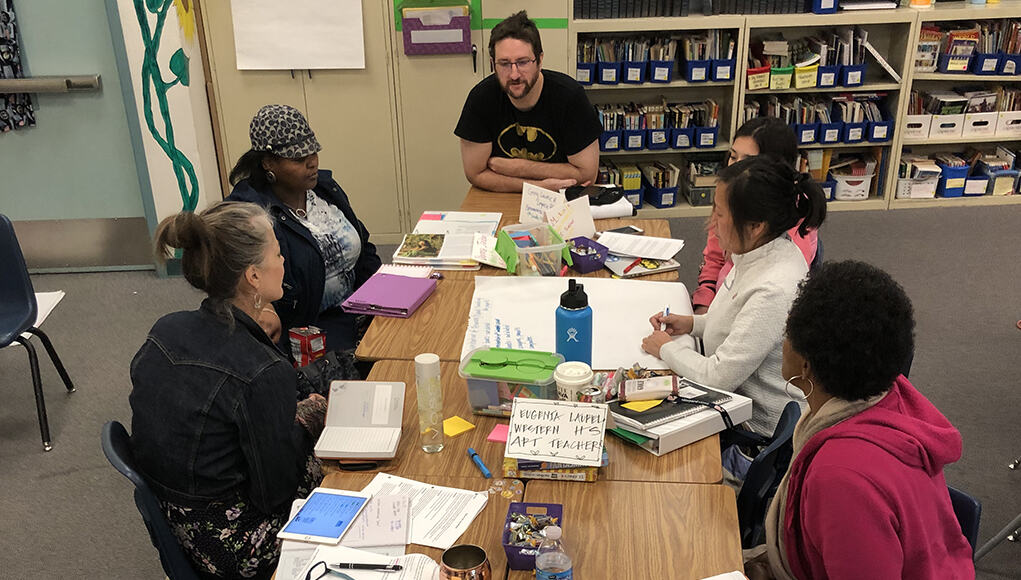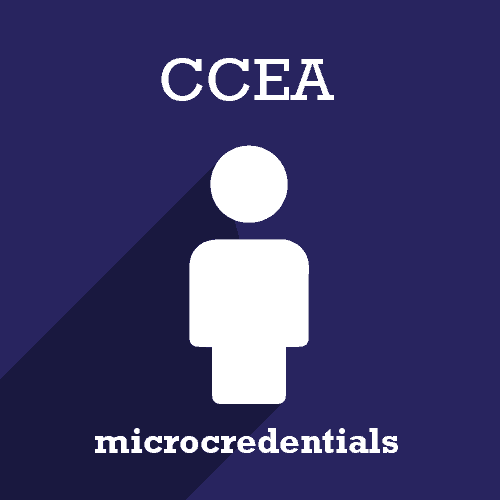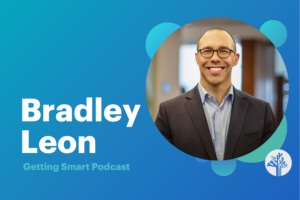Transforming Professional Learning With Micro-credentials

By Brenda A. Pearson.
As a lifelong educator, my professional learning experiences have run the gamut from self-study to week-long intensive institutes. These experiences have increased my knowledge, but few bridged the gap by impacting my instructional practice. The distinction between an impact on knowledge and practice is at the crux of professional learning reform discussions. Traditional professional development offerings are often lackluster and appear ineffective in supporting changes in teachers’ practices and student learning. With an estimated $18 Billion spent annually on professional learning in our nation, evidence of impact is difficult to measure and seldom reported accurately.
When I became the director of professional learning at the Clark County Education Association (CCEA) four years ago, I made it my own personal mission to turn professional learning on its head. The Clark County School District (CCSD) felt saturated with professional development opportunities that were all similar in nature, yet most did not seem to result in improved practice. I have been in a unique role as the director, whereby I’ve been able to work collaboratively with CCSD to understand the needs of our school system while simultaneously creating opportunities through CCEA member-led programs.
My ultimate goal was to create and offer research-backed professional learning opportunities that bridged the gap by impacting instructional and professional practices. The caveat: evidence of this impact had to be available.
It was through the pursuit of this goal that CCEA entered the world of micro-credentials. Micro-credentials are competency-based, enabling educators to be recognized for the knowledge and skills they use to be successful in their field. CCEA saw a need for high quality and effective professional learning that could permeate geographic diversity and align with our schools’ individualized needs. With the support of Digital Promise and Center for Teaching Quality, we released three stacks of micro-credentials.

But CCEA micro-credentials couldn’t simply be sent out into the professional learning abyss; they had to be part of a system that could support them.
Embedding Value and Recognition
A professional learning system needs to exist that acknowledges the value of micro-credentials and recognizes the educator for earning micro-credentials. This requires a two-pronged system of recognition, one that is present at both the state and district levels for Clark County.
Educator Re-certification
At the state level, educators are able to apply their awarded micro-credentials toward license renewal when the professional learning has been authorized by the Nevada Department of Education. Currently, the Nevada Department of Education is moving toward a statewide system that acknowledges the completion of professional learning hours to be applied to an annual requirement. Once this system has been finalized, micro-credentials offered through CCEA can be used toward educator re-certification.
Compensation System
At the district level, educators are typically awarded salary advancement after earning advanced degrees or completing specific professional development requirements. CCEA and CCSD released the Professional Growth System (PGS) in 2016 as an alternative to the traditional salary schedule. The PGS is educator-centered, giving individual teachers the autonomy to determine how they want to improve their practice by choosing activities from a menu of options—one of which is earning micro-credentials. Successfully earning micro-credentials can be one component of a teacher’s professional growth plan leading to salary advancement.
Acknowledging and Honoring Expertise
Leadership opportunities exist within schools and across districts. Whether these positions are embedded within the instructional day, such as literacy coaches, or outside of the school day, such as school-to-community liaisons, serving in leadership roles requires specific knowledge and expertise. Creating structures that acknowledge and honor teacher expertise can support changes in teachers’ practices and student learning.
School-Based Decisions
CCSD School Organizational Teams consist of parents, educators, community members, and support professionals who are tasked with advising and assisting administrators in making school-based decisions (e.g., personnel, budget, instructional, etc.). CCEA has created three micro-credential stacks focused on leadership, stakeholder involvement, and data-based decisions. These teams of stakeholders are challenged with school improvement while remaining mindful of the needs and perspectives of all parties. Micro-credentials serve to acknowledge and honor the expertise that each of these School Organizational Team members bring to the table.
Welcoming Struggles and Successes
CCEA is still relatively new to the micro-credential landscape; in our case, however, the quantity of time does not align with the number of lessons we’ve learned.
First and foremost, autonomy is key. Traditional professional development is often done to the educator, not with the educator. To foster teacher professionalism, we need to believe in and invest in the individuals who work with our students. Through micro-credentials, teachers choose a goal to pursue that is aligned with the individualized needs of their school, and they brainstorm, create, and plan solutions to the barriers they witness.
Don’t underestimate the impact of grassroots efforts. Teachers experience the education system from the level of implementation. They experience the speed bumps firsthand and often have solutions to the struggles we face. Micro-credentials foster collaboration and provide teachers with a platform to share, discuss, and solve together. Solutions can be identified and implemented, building collective efficacy within schools.
Honor the expertise that exists within schools. Micro-credentials assess the competencies of educators forming levels of recognition for verified knowledge and skills. Schools rarely know and utilize the depth of expertise that exists within them. Identifying and acknowledging these experts to build a system focused on school improvement can change the landscape and future of our nation’s education system.
For more, see:
- Leading the Show What You Know Revolution: Digital Credentials From Credly
- A Simple, Free, Powerful Badging System
- Competency-Based Micro-credentials are Transforming Professional Learning
Brenda A. Pearson (@PLOLady) serves as Director of Professional Learning for Clark County Education Association.
_______________________________________________________________________
Stay in-the-know with innovations in learning by signing up for the weekly Smart Update.






0 Comments
Leave a Comment
Your email address will not be published. All fields are required.